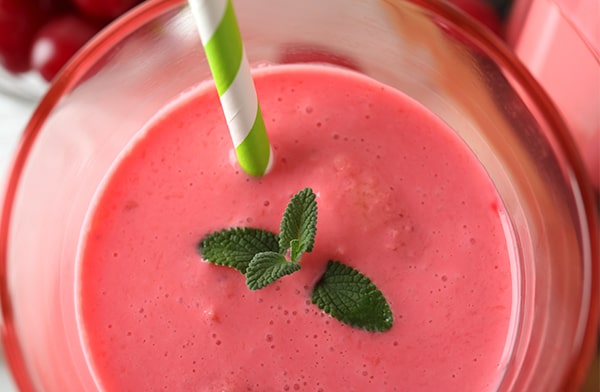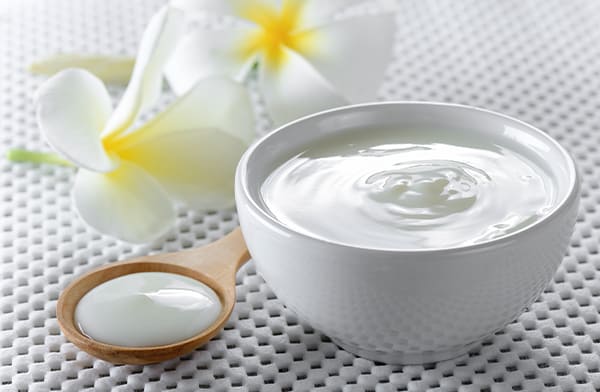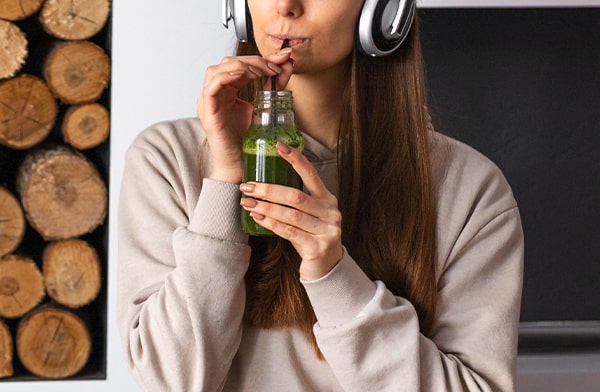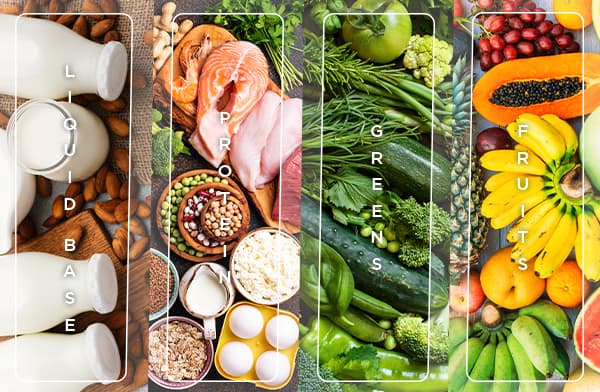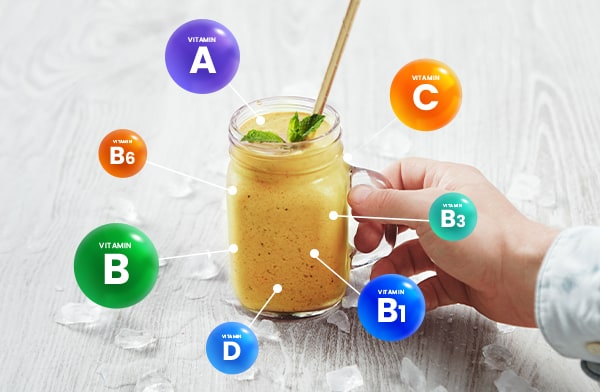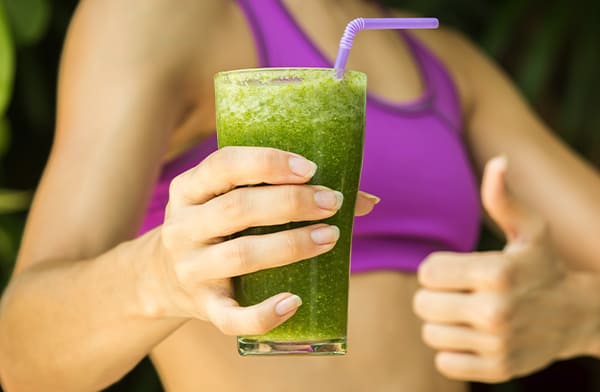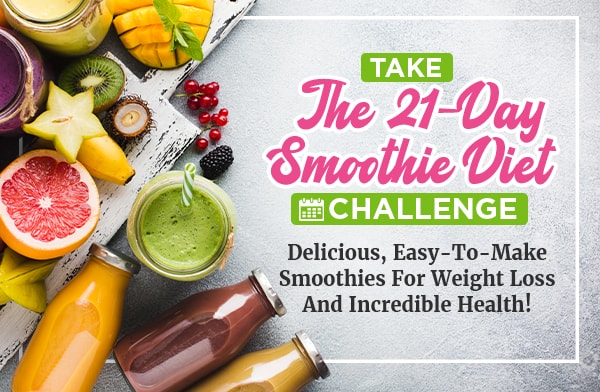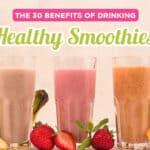Can Smoothies Have a Positive Impact on Your Digestion?
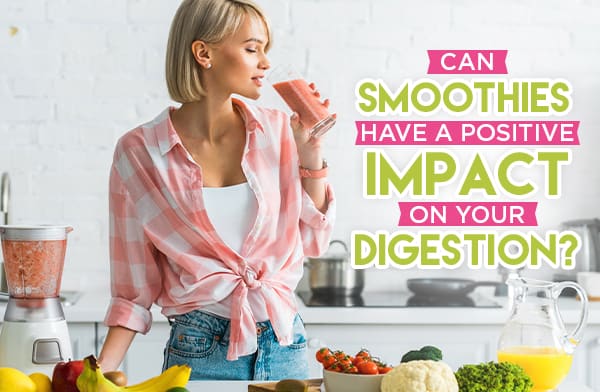
If you ask someone whether or not smoothies are good for your digestion, you’ll get opposing answers. Some people say they’re bad for you, that a liquid meal slides through you and doesn’t give you nutrition and can even cause gut problems. Others, like myself, believe that smoothies are good for you. I’ll tell you why, and let you decide for yourself.
Smoothies Can Include Probiotics
Think about the way your gut works.
- You chew your food, mixing it with saliva and breaking it down into a mash that can be more easily digested.
- You swallow it, where it lands in the stomach. Here, it separates into layers to be digested. Liquid layers seep through solid layers and pass through your digestive tract sooner, usually.
- It passes through your intestines, where various processes break it down further, extracting nutrients and pushing along what you can’t digest or use.
- The remains of your meal exit your body, to be discarded at your earliest convenience.
A key part of digestion is spending time in the intestines. That’s why your intestines are so long, after all. They don’t work quickly, and they work in a lot of different, complex ways.
One thing that is very important, but often overlooked, is the gut biome. Your microbiome is made up of all the bacteria living in your gut. Before you worry about infection, don’t! Your gut bacteria are generally good for you. Well, mostly.
See, there are both good and bad bacteria living in you. Normally, the bad bacteria are kept in check by your immune system, while the good bacteria thrive and fuel your body. However, if your body is thrown out of balance – such as if you eat too much sugar and processed ingredients, or you take a course of antibiotics – the good bacteria end up suppressed and the bad bacteria thrive.
In extreme cases, this can lead to a medical emergency. Most of the time, though, it’s just unpleasant for a while until your biome rebalances.
You can help your gut biome by consuming probiotics. Probiotics are foods that include those healthy bacteria and the food they eat, like fiber (a “pre” biotic).
What ingredient is both a probiotic and a common smoothie ingredient? That’s right, yogurt! Greek yogurt, as well as kefir, is an excellent dairy base for smoothies while acting as a powerful probiotic to keep your gut healthy and happy.
A healthy, happy gut keeps your whole body running at peak performance. There’s a ton of growing evidence that a ton of different medical issues, from chronic conditions to Alzheimer’s Disease and other mental health issues, are a direct result of your gut biome’s performance. There’s something called the GBA, or Gut-Brain Axis, which has a big impact on how your brain functions. A healthy gut is essential to a healthy life.
Smoothies with Fiber Slow Digestion
I’ve noticed that when someone believes that smoothies are good for you, they’re often talking about a different kind of smoothie than those who believe smoothies are bad for you.
Sure. If you go down to the nearest pop-up smoothie vendor and spend $10 on a glass full of ice, a scoop of peanut butter, a banana, and a bunch of fruit juice, that smoothie is going to be bad for you. There’s very little substance to it, no matter how many mixes of vitamins or protein powders they add. Juice is just sugar water with a bit of flavor to it, after all.
Meanwhile, if you consider something like the Smoothie Diet, you’re looking at a smoothie that has a lot more going for it. My smoothie recommendations have:
- A healthy liquid base. Kefir, yogurt, almond milk, or coconut milk are all great, healthy options that are way better than a smoothie based on plain milk, juice, or water.
- A rich protein. Many of my smoothies have a scoop of nut butter in them, to thicken them and add an earthy core flavor, plus a bunch of healthy protein and fat to the mix.
- A handful of greens. Greens are the key to the world! Greens are packed with nutrients, but more importantly, they’re packed with fiber.
- Whole fruits. Apple juice is sugar water, but apples are full of fiber and other nutrients you don’t get from the juice while keeping the full flavor around. The same goes for pretty much every fruit.
Fiber is the key here, as it is essential to a healthy diet and a healthy gut.
Fiber is a carbohydrate, but it’s generally hard or impossible for your body to digest on its own. Some fiber is broken down by the healthy bacteria in your gut! That’s why it’s a “pre” biotic, it feeds the biome. The fiber that isn’t broken down this way exists to slow down your gut, which keeps food around longer. This keeps you feeling full (more on that later) and it prevents you from just passing nutrients through your systems.
Fiber also absorbs water. Like, a lot of water. As it’s broken down, it releases that water back into your system. It’s important for keeping your bowels regular, minimizing dehydration, and more.
Smoothies Help Prevent Dehydration
Speaking of dehydration, did you know that water is good for you? It’s so good in fact, that modern science agrees that it’s essential for life! It’s good stuff.
Most people today don’t drink enough water. Also, a lot of the water we do drink tends to pass through us relatively quickly, because we also don’t eat enough fiber. This is why so many people are so frequently abusing laxatives or digestive medicines, to try to control what your body can control naturally if you give it the right materials to work with.
Smoothies are great to solve all of these problems. I’ve already mentioned the fiber up above, that’s one powerful tool in your arsenal. Another is the fact that the greens, the fruits, almost everything you add to a smoothie have water in it. It’s not the same as just drinking a glass of water, but it’s much better than drinking something like a bottle of soda.
Smoothies give you more water, encourage you to drink more water, and help keep water in your system long enough to be used by the body. It’s almost unbelievable how great they are for keeping you hydrated. A smoothie on a hot day can be better for you than just drinking some water.
Smoothies Can Suppress Appetite
How does suppressing your appetite help with your digestion?
A lot of the problems most people have with digestion come from what they eat. They eat things packed with sugar and preservatives, and they don’t eat much or any whole foods, fruits, or vegetables throughout their days. At best, they might eat “health foods” like granola bars, which are just loaded with sugar anyways. Unfortunately, a lot of what is marketed as healthy isn’t actually all that better than the alternatives.
When you drink a well-formulated smoothie, for example as your breakfast, you feel full. You feel full for longer than you would if you just ate the ingredients individually. There was a study done about this, including MRI scans of digestion.
“Spiller and his team compared the two options head to head in a study, and they found that when people who drank the blended “soup,” it kept them from feeling hungry for about an hour longer than the whole-food meal.”
Fiber lingers in every stage of your digestion, keeping you full and nourished longer than the alternative.
What happens when you feel full? You don’t eat or snack.
Okay, well, you still might. It depends on whether or not your snacking is a habit or oral fixation, or if it’s actual hunger and cravings. The latter can be solved by smoothies, and the former can be broken with habit awareness.
The point is, smoothies suppress your appetite. That makes you less likely to snack on the things that cause you digestive problems. If you’re not eating the things that cause digestive problems, you’re not going to have those digestive problems. Thus, smoothies help your digestion.
Smoothies Include Healthy Nutrients
Smoothies are also packed full of healthy nutrients. I’ve already mentioned probiotics and fiber, two of the most critical nutrients for your digestion.
There are others, though, which can be very important as well.
- Vitamin B1: This helps your body break down carbs into energy, and regulates appetite.
- Vitamin B3: This helps regulate your digestive tract, and a deficiency causes a digestive disease called pellagra.
- Vitamin B6: This one helps you break down protein for use throughout your body.
- Biotin: This B vitamin helps your body process fatty acids, like what you get from healthy fish or a fish oil supplement.
- Vitamin C: In addition to immune support, C helps you absorb iron, and helps keep your teeth and gums healthy.
- Vitamin D: The sunlight vitamin helps your nerves and muscles function, and can help prevent colon cancer. Nothing is less healthy for your gut than cancer, right?
- Vitamin A: This one doesn’t directly help your digestion. However, digestive issues and diseases can leave you susceptible to a deficiency, so getting more of it is always good.
You can also get some foods that have phytonutrients or holistic effects that benefit your digestion. For example, if you add some ginger to your smoothies, you will find that it settles your stomach and helps ease your digestion. There’s a lot to love in the world of smoothies!
Should You Consider Smoothies for Digestion?
I’m a firm believer in the power of smoothies to benefit your health, help you lose weight, and keep you healthy. I’ve seen a lot of people change their lifestyles around smoothies, and it’s great to see every time.
That said, it all comes down to what kind of smoothies you’re making.
By far the most critical component of any smoothie, at least in terms of health effects, is the greens you use in it. This is where all of the commercial smoothie producers fall flat. They very rarely have greens in their smoothies, and when they do, it’s specifically green smoothies. I have nothing against green smoothies – and as a matter of fact, I have many recipes for them in my program – but greens are way more flexible!
You can add greens to just about any smoothie and they will work great. They’re not that strong of a flavor, so they aren’t overpowering. They add their health benefits no matter what other ingredients are in the smoothie.
So, my answer is yes. Smoothies are a good option for digestion.
- If you have digestive issues you fight, smoothies can give you the nutrients, fiber, and nutrition you need to stay healthy and regulate your gut.
- If you want to avoid digestive issues, smoothies can help keep you regular, feed your gut microbiome, and generally keep your body healthy.
- If you have specific medical conditions that affect your digestion, smoothies may be better than the many alternatives.
Now, I don’t recommend replacing every meal with smoothies. Your body needs solid food, which is why some of those meal replacement shakes never quite work out. I also don’t recommend taking a normal meal and blending it up. If you want to make a chicken and rice puree, feel free, but that’s not what I’m telling you to do.
Replace one meal a day with a smoothie, make sure the smoothie is made out of healthy ingredients and includes a handful of greens, and you’ll be good to go.
If you want to know more about what I recommend, in terms of greens, smoothie recipes, diet schedules, or anything else, please pick up a copy of the Smoothie Diet. It contains all of my accumulated wisdom and experience and gives you a great place to start with your smoothies.
Do you have any additional comments, questions, or concerns regarding the Smoothie Diet or anything else smoothie-related? Feel free to leave a comment or reach out at any time!

